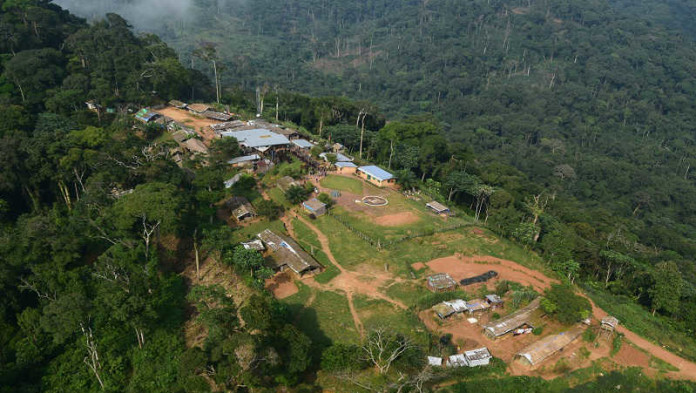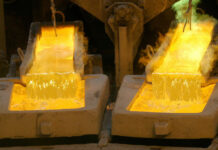
ALPHAMIN agreed new payment conditions with customers and amended a loan as it tackled the impact of a bridge collapse affecting exports, and increased levels of arsenic at Bisie, its tin mine situated in the Democratic Republic of Congo (DRC).
The Toronto- and Johannesburg-listed company said in a September quarter update today that its customer had agreed to provisional invoicing ex-mine. The prevailing agreement is for invoicing to occur when tin concentrates arrive in Kampala, Uganda.
This was expected to improve the company’s liquidity following a bridge collapse reported on October 31, that was expected to take eight weeks to repair. The bridge, situated about 53 kilometres from Kisangani, would be operational by early January, Alphamin said.
“We have advanced various logistical solutions aimed at maintaining the flow of inbound consumables and the export of some concentrates,” the company said. “The outbound flow of concentrates may be limited during the bridge repair period.”
Bisie said tin production for the December quarter would be “at the lower end” of its previous guidance range of between 2,000 and 2,200 tons as the company had encountered higher-than-expected levels of arsenic in the plant feed. Changes to the plant would address the impact of higher impurities but their presence in the concentrate triggered high smelter penalties.
Including the impact of higher increased interim logistical costs, Bisie’s all-in sustaining costs (AISC) per ton would come in at between $12,000 and $13,000 for the December quarter compare to $11,168/t in the September quarter.
Production in the September quarter totalled 2,345 tons compared to 636,000 tons in the June quarter. Given the increase, production has been declared commercial. Debt therefore falls due although there is still some to go before reaching its nameplate 9,600 tons.
Alphamin said it had signed an amendment to its credit facility that gives it the option of deferring up to $16m worth of debt capital repayments in the 2020 financial year. The cost of the amendment option is $400,000 in upfront cash and a further $400,000 cash amount if the option is exercised during the year.
The bridge collapse and unanticipated occurrence of contaminants marks further hiccoughs in Bisie’s commissioning which – for a new mine in an undeveloped, far-flung reach of the DRC – has been predictably uneven.
There are still ambitions to get the mine operating at its original design capacity of just over 12,000 tons of tin concentrate annually. An optimisation programme was being studied which also included plant de-bottlenecking.
An increase in production would also help counter the effects of market volatility. Alphamin said tin prices at between $16,500 to $17,000/t were somewhat “range-bound”, and represented a one fifth decline on the prevailing $20,000/t price six months ago. The fall in pricing was put down to “… challenges faced by the global electronics industry on the back of the US/China and Japan/South Korea trade wars.











